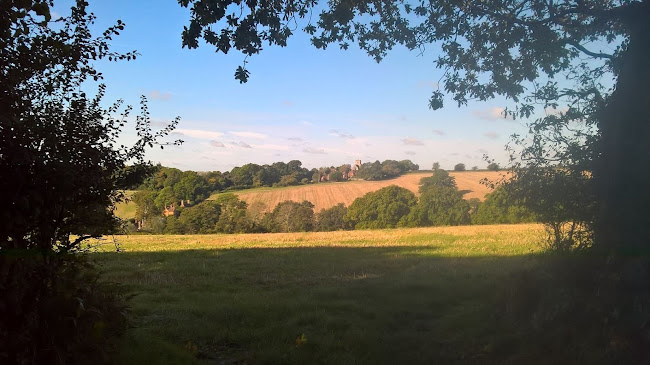We’re going to camp out in
Mark’s Gospel this year.
And I’ll be drawing on
this book by Tim Keller, The King’s Cross: The Story of the World in the Life
of Jesus.
The book actually covers
the whole of Mark’s gospel, but we’re going to focus in particular on the cross
and on just 5 relatively brief passages from chapters 14 and 15.
It’s remarkable, in fact,
that so much of Mark’s gospel, and of the New Testament is focused on the cross.
Jesus lived for about 33
years, but about 40% of the gospels focus on the last week of Jesus’ life.
But before we go any
further, let’s be quiet for a moment and then we’ll pray for our time together.
Prayer:
Our Father, we give you
thanks for Christ and his cross.
Open our eyes afresh we
pray…
Grant us grace that trusting in Christ we to may go the
way of the cross…
Reading 1: Mark 14:32-38
The Greeks and Romans have
left us many stories of great heroes facing their final hour.
They are calm and dispassionate.
Socrates, before he drinks
the deadly hemlock, is coolly coming up with ironic one-liners.
But the Jewish tradition
is different.
In 1 and 2 Maccabees, our
heroes are hot blooded and fearless, praising God as they’re sliced to pieces.
Jesus is like neither.
Jesus opens his heart to
God, to the disciples and to us.
There is real struggle
here.
Now the hitherto unflappable
Jesus is astonished and troubled, horrified at the prospect of the cross.
God the Son is overwhelmed.
Jesus is not somehow
weaker than the many others who have faced martyrdom before and since.
He faced something unique:
The cup of the wrath of
God which was ours by right, but which he drained to the dregs for us.
As the Old Testament puts
it, this large and deep cup of ruin and desolation, this goblet of God’s holy anger
would make God the Son stagger.
In his infinite person,
Jesus will pay an infinite price to win eternal life for innumerable people.
It was impossible for God
to find another way.
Peter and the disciples
could not even watch with him an hour.
But Jesus would do what we
could not do for us.
Here, and here alone, is
the love for which we’ve all been looking all our lives.
Reading 2: Mark 14:43-52
Here is a clash of two kingdoms,
of two administrations of reality, two ways of looking at the world, two sets
of priorities and values.
Judas comes to Jesus with
a secret sign, a kiss, because he expect armed resistance.
But Jesus is not leading a
guerrilla movement by which swords and clubs will bring in his kingdom.
Surprise, surprise: Judas
shows he doesn’t get Jesus and his kingdom.
But neither does Peter.
Yes, Jesus is a king and
he will bring in his kingdom.
But not be wielding a sword.
Rather, by dying on a
cross.
This will be a really
revolutionary revolution.
And a naked man flees from
the garden.
Just as Adam had been naked
before he hid and was expelled from Eden, so this man goes out of the Garden.
A flaming sword kept Adam
out of Eden.
But Jesus will die naked
on the cross and rise, again in a garden.
He will be the Gardener,
the New Adam.
The sword of God’s justice
will fall on him to make a way for us back to paradise.
Reading 3: Mark 14:53-65
There’s nothing more
dramatic than being on trial for your life.
And there’s nothing more dramatic
than the defendant taking the stand to testify.
His life depends on his
words.
But Jesus remained silent
and gave no answer.
Jesus’ life and teaching
speak for themselves.
There may come a chilling moment
where Jesus has nothing more to say to us.
But he will answer one
last question directly and unmistakably:
“Are you the Christ, the
Son of the Blessed One?”
“I am, and you will see
the Son of Man sitting at the right hand of the Mighty One and coming on the
clouds of heaven.”
The High Priest presumes
to seek to judge the Judge of all the World.
In fact, the High Priest
has just lost his job, because here is the great Eternal High Priest who will
offer the one and only everlasting sacrifice for sin.
The trial becomes a riot.
The response of the world,
and even of religion at its best, to Jesus comes a farce.
After his religious trial,
Jesus is again put on show trial in another kangaroo court.
This time Pilate the judge
is judged.
Jesus is innocent.
And yet the lead him out
to crucify him.
Reading 4: Mark 15:21-32
Although Mark doesn’t
mention it explicitly, perhaps the best commentary on that passage is Psalm 22,
written centuries before, partly in the providence of God, as a prophecy of those
terrible events.
We’re going to listen to
that Psalm being sung now by the choir of King’s College, Cambridge.
You might like to compare
the words in our Bibles.
If so its page 554, Psalm
22.
CD: Psalm 22
Reading 5: Mark 15:33-41
The crucifixion of Jesus
must be one of the most depicted events in all human history.
But how many artists have
even tried to capture the fact that, the gospel writers tell us, for 3 hours
darkness covered the whole land?
Like the plague of
darkness over Egypt before the Passover, darkness in the day is a sign in the
Bible of the anger of God.
In 1914, one of the many
problems that Earnest Shakleton and his men faced on their Antarctic expedition was
darkness.
At the South Pole there is
no sun between mid-May and late July.
Imagine how lost and disoriented
it is possible to feel.
There is nothing quite
like that 3 month polar night.
And there was nothing
quite like this 3 hours of darkness which our Lord endured on the cross.
As he became sin for us,
he was forsaken by God the Father – cut off from the experience of the light
and love of God, which was everything for him.
The centre of his universe
was empty.
The existentialist novelist
Albert Camus said:
“The God-man … suffers and
does so with patience… he too is shattered and dies.
The night on Golgotha only
has so much significance for man because in its darkness the God-head, visibly
renouncing all inherited privileges, endures to the end the anguish of death,
including the depths of despair.”
Jesus’ 3 hours of darkness
and desolation, his death, are eternal light and life for us.
The torn curtain shows us
that the way to God is open.
Jesus is that new and
living way.
Surely he is the Son of
God.
Come, trust in him.
He is the Life who died
for you.
The Light who endured and
lit up the darkness for you.
Although it was infinite
and terrible, in a way the Shadow was only a passing thing.





No comments:
Post a Comment